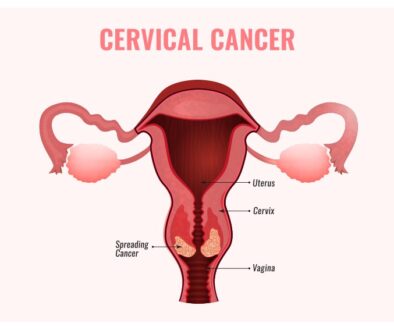Is It Possible to Prevent Gynecological Cancers
How to prevent gynecologic cancer – Dr. Geetha Explains
Gynecological cancers refer to cancers that affect the reproductive organs of women, including the cervix, ovaries, uterus, fallopian tubes, vagina, and vulva. While certain risk factors like age, genetics, and family history cannot be controlled, there are steps that women can take to lower their risk of developing gynecological cancers.
Here are some ways to prevent gynecological cancers
Get regular screenings: Regular screenings for cervical, ovarian, and other gynecological cancers can help detect cancer early when they are most treatable. Talk to your healthcare provider about when to start getting screened and how often to do it.
Practice safe sex: Practicing safe sex and getting vaccinated against the human papillomavirus (HPV) can reduce your risk of cervical and vaginal cancers. Cervical cancer – the main cause is often a sexually transmitted virus: HPV. It often leads to cervical cancer in women.
Maintain a healthy weight: Being overweight or obese increases the risk of endometrial and ovarian cancers. Eating a healthy diet and exercising regularly can help you maintain a healthy weight and lower your cancer risk.
Quit smoking: Smoking increases the risk of several types of cancer, including cervical and vaginal cancers. Smokers are 3 to 4 times at increased risk compared to non-smokers. If you smoke, talk to your general physician regarding the ways to quit smoking.
Limit alcohol consumption: Drinking alcohol in excess can increase the risk of several types of cancer, including breast, ovarian, and endometrial cancers. If you choose to drink, do so in moderation.
Be aware of your family history: Some gynecological cancers can run in families. If you have a family history of gynecological cancers, talk to your healthcare provider about ways to reduce your risk.
Practice good hygiene: Practicing good hygiene can help reduce the risk of vulvar cancer. This includes keeping the genital area clean and dry, wearing cotton underwear, and avoiding scented and chemical-based products.
By following these steps, women can reduce their risk of developing gynecological cancers and maintain their overall health and well-being.
If you still have concerns regarding how to prevent gynecologic cancer, then
Dr. Geetha Nagasree recommends adopting the following healthy habits to lower your risk of gynecologic cancer:
Vaccinate against HPV: If you’re between 9 and 45 years old, getting vaccinated against HPV can protect you from the types of HPV that commonly cause cervical, vaginal, and vulvar cancers. Talk to your healthcare provider about when you or a family member should get the HPV vaccine.
PAP Test
To ensure early detection and reduce the risk of cervical cancer, it’s essential to schedule regular Pap tests. Dr. Geetha highly recommends undergoing Pap tests regularly, even if you’ve received an HPV vaccine. A Pap test examines the cells in your cervix to detect any abnormalities that could develop into cancer. It’s important to note that if you were assigned female at birth, regardless of your gender identity, you likely have a cervix.
Bottom Line
To reduce the risk of gynecologic cancer, it’s essential to adopt healthy habits. While screening for cervical cancer is available, there are currently no simple, reliable tests for other types of gynecologic cancer. Therefore, it’s crucial to pay attention to any symptoms and seek medical advice promptly if you notice any changes.




